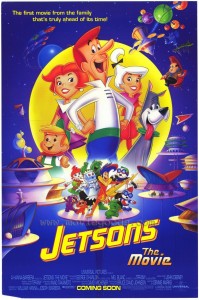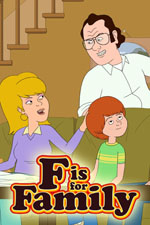
Chuck Jones and Distorted Words. From the square dancing magazine Sets in Order (March 1958), animator and director Chuck Jones wrote, “Cartoonists are strange men in many ways and they have a tendency to look at the world as through a cheap piece of window pane. That is, things have an odd way of looking distorted, including words and phrases. When the cartoonist hears a phrase he seldom analyzes it but rather savors it for shape and sound. The next time he uses it, it may emerge in a new and picturesque way.”
 Bluth Leaving Disney. From a letter from Don Bluth March 1984: “The reasons we left Disney are many and often complex, but it basically boils down to the fact that we felt that the management at the Studio was more interested in making a profit than maintaining the standards in production that were established when Walt Disney was in charge. After a while, we felt we might better serve the cause of animation by gaining more control of the production process. This necessitated our leaving the Studio system. Yes, we are aware that our names are not in the recent Disney Animation: The Illusion of Life. No doubt decisions were made by the authors and editors of the book not to mention artists not currently at the Studio.”
Bluth Leaving Disney. From a letter from Don Bluth March 1984: “The reasons we left Disney are many and often complex, but it basically boils down to the fact that we felt that the management at the Studio was more interested in making a profit than maintaining the standards in production that were established when Walt Disney was in charge. After a while, we felt we might better serve the cause of animation by gaining more control of the production process. This necessitated our leaving the Studio system. Yes, we are aware that our names are not in the recent Disney Animation: The Illusion of Life. No doubt decisions were made by the authors and editors of the book not to mention artists not currently at the Studio.”
 T. Hee and Stromboli. From The Daily Mirror March 28, 1940: “Mr. T. (Thornton) Hee is one of the five sequence directors who worked for two years to produce Walt Disney’s Pinocchio (1940). T. Hee needed real ability to transpose his placid face into the fierce façade of Stromboli, the blood-thirsty puppet-master. Not only his face but also the figure of the six foot three inch Mr. Hee was used as a model for the enormous puppet master. Now twenty-eight years old, Mr. Hee believe the reason for the success of Disney’s imaginative fantasies is ‘Nobody working for Walt is over thirty-eight years old and he’s the best actor on the lot’.
T. Hee and Stromboli. From The Daily Mirror March 28, 1940: “Mr. T. (Thornton) Hee is one of the five sequence directors who worked for two years to produce Walt Disney’s Pinocchio (1940). T. Hee needed real ability to transpose his placid face into the fierce façade of Stromboli, the blood-thirsty puppet-master. Not only his face but also the figure of the six foot three inch Mr. Hee was used as a model for the enormous puppet master. Now twenty-eight years old, Mr. Hee believe the reason for the success of Disney’s imaginative fantasies is ‘Nobody working for Walt is over thirty-eight years old and he’s the best actor on the lot’.
Biggest salaries are up to $400 a week and go to the animators who work for Disney. Nobody, not even Disney make any Selznick-sized salaries. Walt, himself, gave up polo because he needed his polo-money for production expenses.” Hee passed away October 30, 1988 and spent some time teaching caricature at CalArts. Actually, he told the students that caricature could not be taught, just observation like facial proportions.
Tiffany’s Judy Jetson. In USA Today from July 6, 1990, eighteen year old pop singer Tiffany talked about doing the role of Judy Jetson in Jetsons: The Movie (1990). Janet Waldo had supplied the voice for Judy for nearly twenty-eight years and had already recorded all the dialog for the character but was then replaced by Tiffany.
 As noted writer Mark Evanier shared on his website June 14, 2016: “Janet recorded the speaking role of Judy and it was expected that the then-current pop sensation, Tiffany, would only supply the singing voice. Tiffany was signed but she and/or her managers reportedly insisted that Tiffany also replace the spoken lines. At the insistence of Universal Pictures, which was releasing the film, this was done.
As noted writer Mark Evanier shared on his website June 14, 2016: “Janet recorded the speaking role of Judy and it was expected that the then-current pop sensation, Tiffany, would only supply the singing voice. Tiffany was signed but she and/or her managers reportedly insisted that Tiffany also replace the spoken lines. At the insistence of Universal Pictures, which was releasing the film, this was done.
“Janet was upset, though comforted by an incredible outpouring of support from her many fans. In 1997 at a retirement party for her frequent co-star Don Messick, Joe Barbera spoke and took the opportunity to apologize in front of most of the voiceover community to Janet for letting that happen. She forgave him and that more or less buried that matter.”
Tiffany, who claimed to be a longtime Jetsons fan, said that she only did the dialog as well as the singing because the producers insisted. She stated in a newspaper interview from 1990: “I didn’t know if I should try to imitate how I thought Judy always sounded or if I should make it ‘Tiffany Does Judy’. They decided they wanted her to sound a little older, and now she has a more breathy voice. It was nice having patient people working with me. It was hard doing the lines with the right expressions but slowly but surely they brought it out of me.”
Bill Burr. Netflix’s F Is for Family is an animated show produced by Vince Vaughn’s Wild West Television and Gaumont International Television and is loosely based on stand-up comedian Bill Burr’s and co-creator Michael Price’s (The Simpsons) experiences growing up in the 1970s where cigarette machines were everywheres, corporal punishment was acceptable to discipline children and kids explored their neighborhoods without supervision.
 Burr does the voice of the main character, Frank Murphy, the short-tempered father of a typical working class family.
Burr does the voice of the main character, Frank Murphy, the short-tempered father of a typical working class family.
“It’s an exaggeration of part of (my dad’s) personality, part of Mike Price’s dad and then everybody else’s dad in the writers’ room,” said Burr in an interview with Thaddeus McCollum in the Orlando Weekly for May 4-10, 2016. “If my family sits down and watches it, they’ll see little things, but as far as evrything else, it’s completely different.
“Every once in a while, I’ll throw in something that my dad said, and other times, it’ll be an experience that happened to me as a child, but there’s always a twist on it because there’s a bunch of other people pitching ideas in there. And I wanted my family to be able to sit down and watch it and not be mortified that I put all of our dirty laundry out there.
“I like absurd comedy. I really enjoy it, but that’s not my style. I just thought it would be interesting if, even though it’s an animated show, if we kept it believable, but you still have fun with the animation. Some of the scenes we do, like when (middle child) Bill goes into the bathroom at the stadium (and witnesses disturbing behavior and hygiene from a group of drunken football fans), you’re able to have fun with animation like that. But at the root of it, is the mind-altering experience, the psychological damage that that was. We kind of walk that line.
“Even though the show takes place in the early 1970s, the throughline is basically that as much as stuff has changed, having a volatile parental figure or going through getting bullied, a lot of the stuff about growing up and being in a family is timeless. So the cars look different or a lot of the technology is different but generally speaking, raising a family is raising a family.”


 Jim Korkis is an internationally respected animation historian who in recent years has devoted his attention to the many worlds of Disney. He was a columnist for a variety of animation magazines. With his former writing partner, John Cawley, he authored several animation related books including The Encyclopedia of Cartoon Superstars, How to Create Animation, Cartoon Confidential and Get Animated’s Animation Art Buyer’s Guide. He taught animation classes at the Disney Institute in Florida as well as instructing classes on acting and animation history for Disney Feature Animation: Florida.
Jim Korkis is an internationally respected animation historian who in recent years has devoted his attention to the many worlds of Disney. He was a columnist for a variety of animation magazines. With his former writing partner, John Cawley, he authored several animation related books including The Encyclopedia of Cartoon Superstars, How to Create Animation, Cartoon Confidential and Get Animated’s Animation Art Buyer’s Guide. He taught animation classes at the Disney Institute in Florida as well as instructing classes on acting and animation history for Disney Feature Animation: Florida.




















































The Tiffany controversy was big news here in SoCal. Many of the news media reported on the story on how Janet Waldo (the last surviving cast member of The Jetsons) was unceremoniously dumped from Jetsons The Movie in favor of Tiffany no thanks to MCA Records and Universal pressuring Hanna Barbera Studios to 86ed Janet Waldo in favor to woo the younger audience to have Tiffany as Judy Jetson instead of fan favorite Janet Waldo. That set a ginormous backlash with the Jetson purists and caused the movie to fail in the box office. The saddest irony was that Janet Waldo was denied to star with the surviving original cast members of the Jetsons for one last time (Daws Butler passed away before Jetsons the Movie started and was replaced by his protege Patric Zimmerman and both George O’Hanlon and Mel Blanc died during final production of the film.) I was happy the Joe Barbera decided to make peace with Janet Waldo after the fallout that he received after the Tiffany incident that caused Janet Waldo to be unfairly bumped from Jetsons the Movie.
What’s odd is that when Hanna Barbera came out with Rocking With Judy Jetson Janet Waldo was the speaking voice of Judy Jetson and B.J. Ward was Judy Jetson’s singing voice. Maybe they should have kept it like that with Janet Waldo as Judy Jetson and Tiffany as her singing voice?
Just seemed like bad timing there to start with.
And, the irony, now NO one knows who “Tiffany” is…but evvvvvery one will (still) know the word “Janet Waldo!!!”
Thankfully it worked that way!
Sadly Janet Waldo the last surviving cast member of The Jetsons passed away on June 12, 2016 of a inoperable brain tumor.
That is quite sad to think about. It really puts me off further from ever wanting to watch that movie again!
I think it was Henry Morgan, the acerbic radio wit, who said; “Everything in life is worth trying once, except incest…and square dancing!”